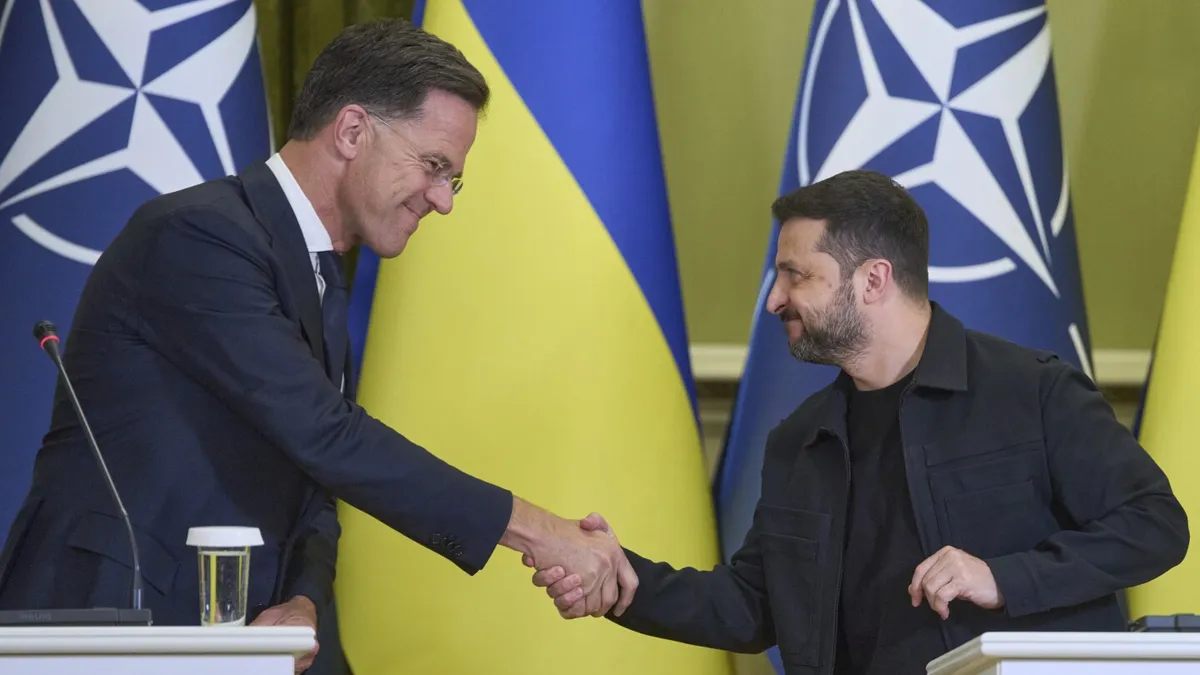
On Friday, Russia’s Foreign Minister Sergey Lavrov made a definitive statement regarding the ongoing conflict between Russia and Ukraine, indicating that there are currently no plans for a meeting between Russian President Vladimir Putin and Ukrainian President Volodymyr Zelenskyy. This announcement comes just days after U.S. President Donald Trump claimed to have initiated arrangements for a summit between the two leaders. In a taped interview for NBC’s Sunday show “Meet the Press with Kristen Welker,” Lavrov stated, “There is no meeting planned” between the two heads of state.
President Trump took to social media on Monday, asserting that he had spoken with Putin and had begun organizing a summit, with the location yet to be determined. Trump further stated that he would participate in a trilateral meeting following the one-on-one discussions between Putin and Zelenskyy. The recent developments have raised concerns over Moscow’s commitment to U.S.-led peace initiatives, especially as Russian officials have voiced objections to the fundamental elements of proposed agreements.
Lavrov emphasized that while Putin is willing to meet with Zelenskyy to discuss peace terms, such a meeting would only occur after senior officials have resolved key issues. This could potentially lead to a prolonged negotiation process, as both sides appear to be significantly apart in their demands. Ukraine is seeking Western security guarantees to deter any potential postwar aggression from Russia, while U.S. and European officials are working diligently to devise detailed proposals to address these security concerns.
Amid the ongoing discussions, Zelenskyy expressed skepticism regarding Russia's intentions. During a press conference with NATO Secretary General Mark Rutte, he remarked, “The Russians are trying to do anything to avoid the (summit) meeting. The issue is not the meeting itself, the issue is that they do not want to end the war.” Zelenskyy emphasized the necessity of reducing the “space for avoidance” in negotiations, asserting that unity among the U.S. and Europe would help facilitate progress.
Rutte echoed Zelenskyy’s sentiments, highlighting that Trump aims to “break the deadlock” with Putin and engage the United States in providing security guarantees for Ukraine. He clarified that the proposed guarantees would consist of two layers: the first to focus on strengthening the Ukrainian armed forces post-peace deal or long-term ceasefire, and the second to involve commitments from both Europe and the United States.
In a stark warning, the European Union’s foreign policy chief cautioned against the prospect of Ukraine conceding territory to Russia as part of a peace agreement. Kaja Kallas labeled such concessions a “trap” set by Putin, arguing that rewarding Russia for its aggression would only encourage further violence. “The discussion about what Ukraine should give up is exactly the trap that Russia wants us to walk into,” Kallas stated in an interview with the BBC, reinforcing that Russia has yet to make any concessions.
In response to ongoing hostilities, Ukraine has launched counterattacks targeting critical infrastructure supporting Russia's military efforts. Recently, Ukrainian forces struck the Druzhba oil pipeline, targeting the Unecha oil pumping station in Russia's Bryansk region. Reports indicate that Ukraine utilized HIMARS rockets and drones in a coordinated assault, further intensifying the conflict as Russian gasoline prices soar to record highs.
As diplomatic efforts continue to unfold amid escalating tensions, the international community watches closely, hoping for a resolution to the three-year war that has caused immense suffering and instability in the region.